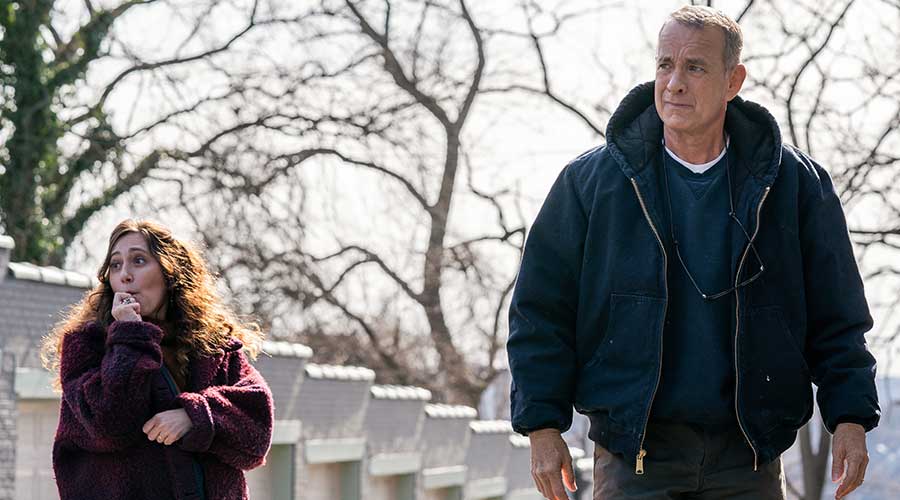What’s to watch on Netflix?
- 20 Apr - 26 Apr, 2024
The issues with this retelling are evident right away in A Man Called Otto, the second film version of Fredrik Backman's book A Man Called Ove. We initially meet Otto Anderson (Tom Hanks), a cranky man in his 60s, at a hardware store. He abrasively informs the employee (played by John Higgins of Please Don't Destroy) that he would like to cut the amount of rope he needs himself and then whines when he is overcharged pennies for what he is purchasing.

The entire time, Thomas Newman's eccentric score suggests that there may be a humorous tale hidden beneath the gruff man we see in front of us. We learn that Otto purchased this rope with the goal to hang himself in his living room after hurriedly attending his retirement party and some sour exchanges with his neighbours.
Those who have read the Backman novel or seen the 2015 Swedish film adaptation of this tale shouldn't be surprised by this. However, this adaptation, directed by Christopher Robin and Finding Neverland director Marc Forster, handles the comedy and drama juxtapositions in an odd and frequently weird manner that both undermines much of the story's emotional impact and occasionally results in unintended laughter.
Otto is a man who hates everything about it. Otto is continuously irritated by the younger individuals he encounters on a regular basis, as well as by those who abide by the arbitrary regulations he has imposed on the neighbourhood, in addition to his problems with being asked to retire. Otto's primary source of rage, though, is from the fact that he can no longer share this world with his recently deceased wife Sonya.
When Marisol (Mariana Trevio) and her family move into the neighbourhood, Otto's ambitions to return to his wife are, as he puts it, put on hold. Otto and Marisol form an odd relationship, and as Otto assists his new neighbours, he starts to appreciate life's little pleasures.
Although Forster's interpretation of these memories is odd and undermines their potential, they are also some of the most dramatic scenes in the movie. Forster's choice to alternate between these youthful moments and Otto seeking to end his own life, for instance, is genuinely uncommon given that these moments frequently occur when Otto is making a suicide attempt. Additionally, these scenes would be far more impactful if they were completely cut from the movie because the film's clumsy song selections are at their worst at these times.
The School for Good and Evil and Lady Chatterly's Lover screenplay by David Magee, who previously worked with Forster on Finding Neverland and has written two more films this year alone, has a good heart, but the attempts to make the audience cry are crude and overt. Virtually as if our society were exaggerated in A Man Called Otto, where the young people are almost always in the wrong and things aren't as good as they used to be "back in my day," Otto once jumps to the ground to save an elderly guy who has fallen onto a train track.
Despite the title, Trevio's portrayal of Marisol is the true star of A Man Called Otto. She immediately rejects Otto's antics and treats him with sternness and kindness, just like Sonya did. We can sense Trevio's warmth for Otto and the entire community she has become a part of from the minute she first appears in the movie. Via her character, we learn how adopted families may be just as significant as biological ones and how those we have lost can continue in some ways live on through our interactions with others. Naturally, A Man Called Otto is at its best as we witness this friendship develop, as the coldness of Otto and the love of Marisol play off each other.
A Man Called Otto is a clumsy remake, especially in comparison to the 2015 adaption, that frequently feels like it's full of cartoonish characters, has bad song selections, and is overly sentimental. However, the story of Otto and Marisol is frequently a thing of beauty, and their amazing friendship is lovely to see develop, when Forster and Magee distance themselves from these peculiarities. When viewing A Man Called Otto, it's simple to identify with Otto's feelings of frustration with the majority of what's happening and fleeting glimpses of the beauty in the world.
COMMENTS